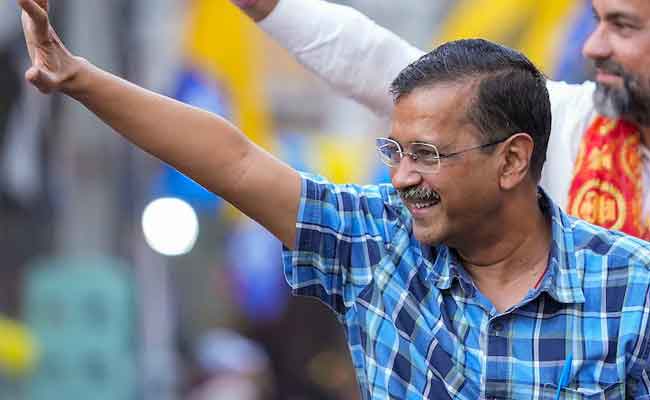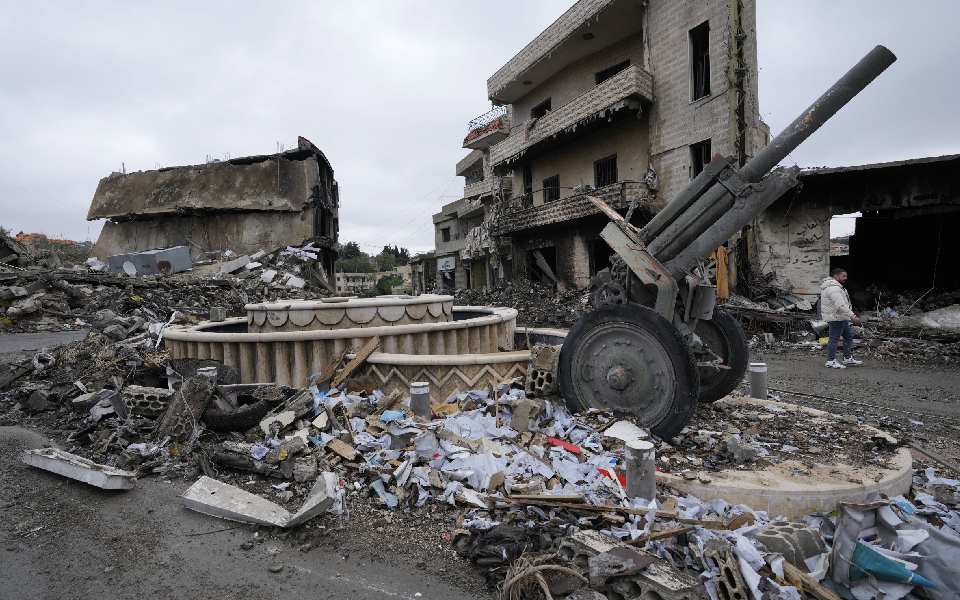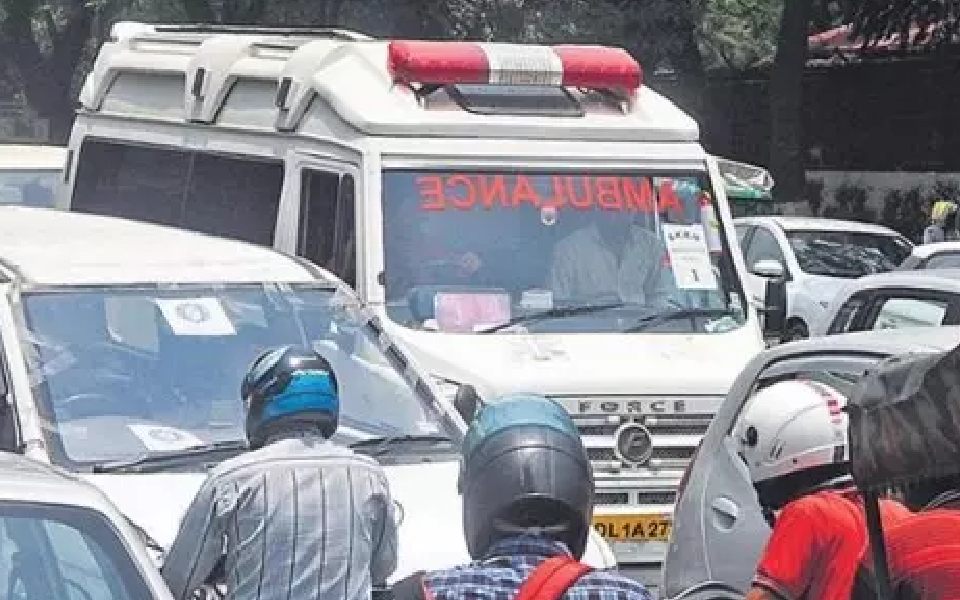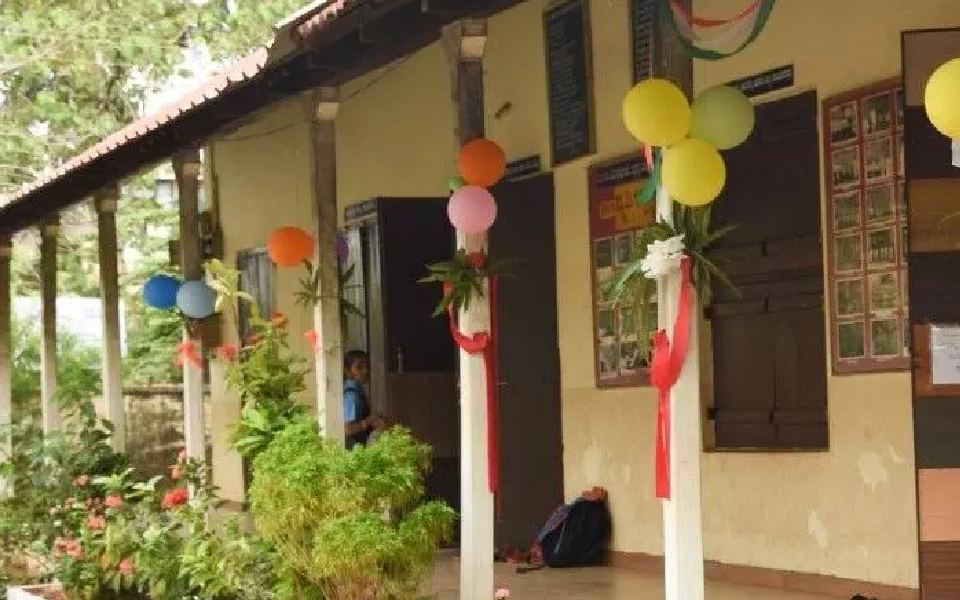New Delhi (PTI): The Supreme Court on Friday granted bail to Delhi Chief Minister Arvind Kejriwal in the corruption case lodged by the CBI in connection with the excise policy 'scam', saying prolonged incarceration amounts to unjust deprivation of liberty.
A bench of Justices Surya Kant and Ujjal Bhuyan granted the relief to Kejriwal on furnishing a bail bond of Rs 10 lakh, and two sureties of like amount.
Kejriwal, who was arrested by the ED in the excise policy case on March 21,
was granted interim bail on May 10 for campaigning in the Lok Sabha polls and has been in jail since June 2 when he surrendered.
The top court directed Kejriwal not to make any public comment on the merits of the case and added that terms and conditions as imposed in the ED case would also be applicable here.
The top court, while granting him bail in the ED case, had said that Kejriwal cannot visit his office or the Delhi Secretariat and not sign any official file unless absolutely necessary to obtain the Lieutenant Governor's sanction.
It said completion of trial was unlikely to occur in the immediate future and rejected the apprehension of tampering by Kejriwal.
Justice Bhuyan, who wrote a separate judgement, concurred with Justice Kant on grant of bail.
However, Justice Bhuyan questioned the timing of Kejriwal's arrest by the CBI and said the agency's aim was to frustrate grant of bail to him in the ED case.
I fail to understand the CBI's urgency to arrest Kejriwal on cusp of release in the ED case when it did not do so for 22 months, Justice Bhuyan said.
He said the CBI can't justify arrest and continued detention citing evasive replies by Kejriwal, and added that non-cooperation cannot mean self-incrimination.
"The CBI must dispel notion of being a caged parrot, must show it is an uncaged parrot," Justice Bhuyan said.
It would be travesty of justice to keep Kejriwal in custody when he has got bail in the ED case on the same grounds, he said.
Justice Bhuyan said he has serious reservations on the conditions imposed in the ED case on Kejriwal which bar him from entering the CM's office and signing files.
"I am not commenting on conditions imposed on Kejriwal due to judicial discipline as it was in separate ED case," he added.
The bench had on September 5 reserved its verdict on the pleas.
Kejriwal has filed two separate petitions challenging the denial of bail and against his arrest by the CBI in the corruption case filed by the central agency.
The AAP chief was arrested by the Central Bureau of Investigation (CBI) on June 26. He has challenged in the apex court the Delhi High Court's August 5 order which upheld his arrest in the corruption case.
On July 12, the apex court had granted interim bail to Kejriwal in the money laundering case.
The top court had referred to a larger bench, preferably of five judges, for in-depth consideration of three questions on the aspect of "need and necessity of arrest" under the Prevention of Money Laundering Act (PMLA).
During the arguments on September 5 on Kejriwal's plea in the corruption case, the chief minister had vehemently opposed in the apex court the CBI's contentions that he should have approached the trial court first for bail in the corruption case. Questioning the maintainability of Kejriwal's pleas, Additional Solicitor General S V Raju, appearing for the CBI, had submitted that even in the money laundering case in which he had challenged his arrest by the ED, he was sent back by the apex court to the trial court.
Let the Truth be known. If you read VB and like VB, please be a VB Supporter and Help us deliver the Truth to one and all.
Beirut, Nov 28: The Israeli military on Thursday said its warplanes fired on southern Lebanon after detecting Hezbollah activity at a rocket storage facility, the first Israeli airstrike a day after a ceasefire between Israel and Hezbollah took hold.
There was no immediate word on casualties from Israel's aerial attack, which came hours after the Israeli military said it fired on people trying to return to certain areas in southern Lebanon. Israel said they were violating the ceasefire agreement, without providing details. Lebanon's state-run National News Agency said two people were wounded.
The back-to-back incidents stirred unease about the agreement, brokered by the United States and France, which includes an initial two-month ceasefire in which Hezbollah members are to withdraw north of the Litani River and Israeli forces are to return to their side of the border. The buffer zone would be patrolled by Lebanese troops and UN peacekeepers.
On Thursday, the second day of a ceasefire after more than a year of bloody conflict between Israel and Hezbollah, Lebanon's state news agency reported that Israeli fire targeted civilians in Markaba, close to the border, without providing further details. Israel said it fired artillery in three other locations near the border. There were no immediate reports of casualties.
An Associated Press reporter in northern Israel near the border heard Israeli drones buzzing overhead and the sound of artillery strikes from the Lebanese side.
The Israeli military said in a statement that “several suspects were identified arriving with vehicles to a number of areas in southern Lebanon, breaching the conditions of the ceasefire.” It said troops “opened fire toward them” and would “actively enforce violations of the ceasefire agreement.”
Israeli officials have said forces will be withdrawn gradually as it ensures that the agreement is being enforced. Israel has warned people not to return to areas where troops are deployed, and says it reserves the right to strike Hezbollah if it violates the terms of the truce.
A Lebanese military official said Lebanese troops would gradually deploy in the south as Israeli troops withdraw. The official spoke on condition of anonymity because they were not authorized to brief media.
The ceasefire agreement announced late Tuesday ended 14 months of conflict between Israel and Hezbollah that began a day after Hamas' Oct. 7, 2023 attack out of Gaza, when the Lebanese Hezbollah group began firing rockets, drones and missiles in solidarity.
Israel retaliated with airstrikes, and the conflict steadily intensified for nearly a year before boiling over into all-out war in mid-September. The war in Gaza is still raging with no end in sight.
More than 3,760 people were killed by Israeli fire in Lebanon during the conflict, many of them civilians, according to Lebanese health officials. The fighting killed more than 70 people in Israel — over half of them civilians — as well as dozens of Israeli soldiers fighting in southern Lebanon.
Some 1.2 million people were displaced in Lebanon, and thousands began streaming back to their homes on Wednesday despite warnings from the Lebanese military and the Israeli army to stay out of certain areas. Some 50,000 people were displaced on the Israeli side, but few have returned and the communities near the northern border are still largely deserted.
In Menara, an Israeli community on the border with views into Lebanon, around three quarters of homes are damaged, some with collapsed roofs and burnt-out interiors. A few residents could be seen gathering their belongings on Thursday before leaving again.





